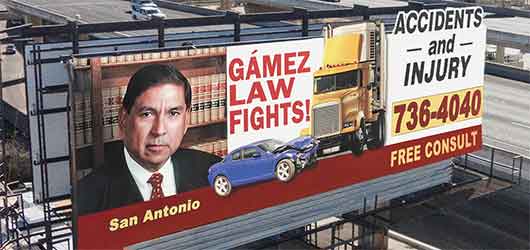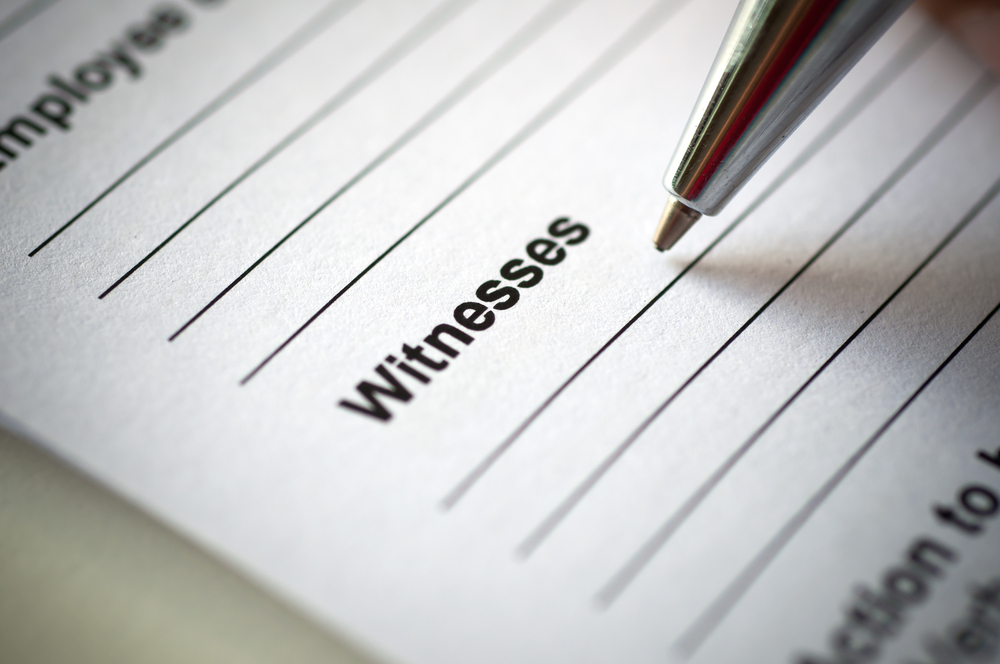Car accidents happen suddenly and unexpectedly. In the aftermath, it can be difficult to understand exactly what happened, especially if each driver has a different story to tell. Eyewitness statements often help a car accident attorney piece together the exact sequence of events and prove which driver was responsible for the crash. If you’re currently filing any kind of personal injury claim in San Antonio, you’re likely to need witnesses to help strengthen your claim.
How Can Witnesses Help in a Car Accident or Personal Injury Case?
Whether you’ve suffered a car accident, a slip and fall accident, a dog bite attack, or any other kind of accident, you may be able to recover compensation for your medical bills and other losses. You can seek to do so by filing a personal injury claim or lawsuit against the individual or company that caused your injury. But to win compensation, you’ll first need to prove that the other party does indeed bear responsibility.
Sometimes the at-fault party disputes their liability for an accident or injury. They may claim that events occurred differently, or even that you yourself were at fault. This is where reliable eyewitness testimony can be invaluable. Statements from individuals who witnessed the accident can help corroborate your own story and prove that the other party owes you compensation.
First-Party vs Third-Party Witnesses
When speaking about eyewitnesses to an accident, we typically mean third-party witnesses: independent onlookers who have no personal connection to anyone involved in the accident. In a car crash case, third-party witnesses might include other drivers, pedestrians, or people working or living near the scene of the collision. In a slip-and-fall accident, third-party witnesses may include other shoppers at the store, other visitors to the premises, or coworkers if you were injured at work.
First-party witnesses, on the other hand, are people involved in the accident who have a possible stake in the outcome of the claim. You and the other driver are both considered first-party witnesses, as are any friends, relatives, or passengers who witnessed the accident. In court, the testimony of neutral third-party witnesses tends to hold more weight than first-party witnesses because they’re less likely to be biased.
Always Collect Eyewitness Details at the Scene
Whatever kind of accident you experience, it’s important to talk to eyewitnesses at the scene of the accident. Otherwise, onlookers may wander off and become difficult to find later on. When speaking to eyewitnesses, ask politely for their contact details. Your attorney can later contact them to request a detailed statement.
When police turn up at the scene of an accident, they’ll also attempt to speak to witnesses and obtain statements. If you’ve already approached witnesses, you can point the police toward those individuals who seemed helpful. If you’re too badly injured to talk to witnesses yourself, it’s wise to have a friend or family member do so on your behalf. You can even ask an attorney to send a special investigator to the scene to gather evidence.
Not All Eyewitness Statements Are Credible
Some witness statements aren’t credible enough to be useful in a claim or courtroom. When your attorney begins to build your case, they will need to consider the reliability of each witness: how likely a judge and jury are to accept their testimony. At the moment when an accident occurs, people nearby can be shocked and focused entirely on their own safety rather than carefully observing events.
A crash or fall can also be over in the blink of an eye. If a witness wasn’t looking directly at you when it happened, they may miss many important details. In some accidents, it can be difficult for eyewitnesses to understand what happened, such as with many motorcycle accidents. On top of this, human memories are fallible; the longer ago the accident occurred, the less reliable memories are to be accurate.
Factors That Determine Witness Credibility
An eyewitness may be considered less credible if they didn’t see the entire accident from start to finish, they were very far away, they have poor eyesight or hearing, they were intoxicated, they were distracted by their phone, baby, or friend, or they were particularly upset and traumatized by the accident. They might also be considered less credible if they have ever been convicted of a crime or demonstrated morally questionable behavior in the past.
Lay Witnesses vs Expert Witnesses
Both first-party and third-party witnesses are called lay witnesses. A lay witness is someone who witnessed the accident and can provide testimony describing what they saw and heard, but nothing more. A lay witness cannot offer their own opinions about who was responsible for the accident.
Another type of witness – expert witnesses – also play a vital role in many car accident cases and other personal injury claims. An expert witness didn’t see the accident firsthand but has a high level of specialist knowledge regarding a certain aspect of the accident and can therefore provide their expert opinion about what happened and who was to blame.
Examples of Expert Witnesses
In a road accident case, your attorney might hire an accident reconstruction expert, who can use photographic and video evidence to recreate the accident with a timeline or 3D model in order to persuade the jury. In a slip-and-fall case, a building safety expert may be retained to explain how the property owner allowed hazardous conditions to develop on their premises.
Medical malpractice cases often depend on expert medical witnesses who can decipher and explain complex areas of specialist medical care, and demonstrate how the physician in question acted with negligence. In a product liability case, a mechanical, chemical, or electrical engineering expert might testify on how the product was flawed and dangerous when released to the public.
Finding Expert Witnesses in San Antonio
When you hire a well-established personal injury attorney in San Antonio, they and their law firm will have access to a network of local expert witnesses from prior cases. Without an attorney handling your case, it can be difficult to find appropriate expert witnesses or even know which experts your case needs in the first place.
Using Witnesses To Prove Your Damages
In addition to helping you prove liability, both expert witnesses and law witnesses can also be used to help prove the value of your damages. For example, if your injuries are so severe that you require ongoing medical care into the future, a medical expert can help estimate and prove how much this future medical care is likely to cost you.
If you’re claiming non-economic damages such as emotional distress and loss of enjoyment in life, a clinical psychologist expert may help prove these psychological damages. Lay witnesses, such as individuals close to you: family members, friends, and coworkers, may also provide testimony about how your emotional well-being and participation in favorite pastimes have suffered since the accident.
How a Car Accident Attorney Can Prepare Witnesses
As soon as you hire an attorney, they’ll begin working to build a strong case based on evidence and witness testimony. Experienced attorneys are extremely proficient at finding and selecting the best eyewitnesses and expert witnesses to prove the liability of the at-fault party and the value of a client’s damages.
Even if you’re hoping to negotiate an out-of-court settlement, your attorney can prepare witness statements and testimony as if you intend to try the case before a judge and jury. Preparing such a robust case strengthens your negotiating hand and may help persuade the insurance company to agree to a full and fair settlement before a jury trial becomes necessary.
If you’d like a seasoned car accident attorney fighting your corner, contact Gamez Law Firm today at 210-951-2024. We’ve been helping accident victims in San Antonio recover financially from their accidents and injuries since 1973.



